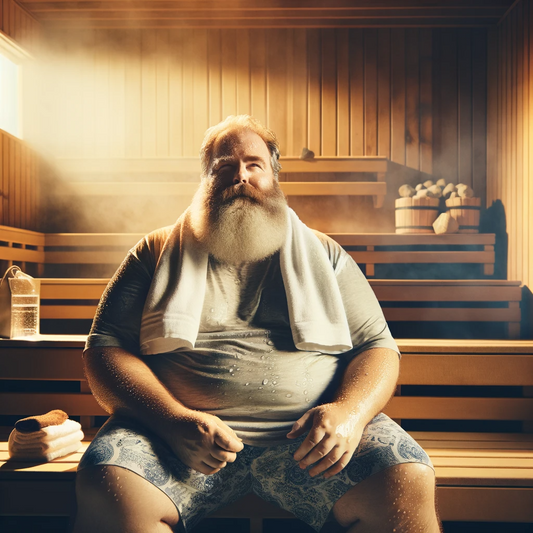Allow me to start by painting a scenario you might be well familiar with: it's a chilly afternoon, and you're stepping into your backyard to your private sauna, ready to bask in the warmth for a much-desired respite. As the relaxation process inches in, you may find yourself questioning how long you should actually be in the sauna. How do you ensure that you reap the rejuvenating benefits without exceeding the invisible line of safety?
It's a delicate dance—striking a balance between optimizing the restorative benefits of sauna bathing and managing the potential health risks of overexposure. So, let's dive into this hot topic and uncover how long you can (and should) safely remain in a sauna.
Could an hour be overdoing it?
Could an hours' stay in the sauna be too long? Well, this depends on several factors, including your personal comfort threshold, the sauna's temperature, and potentially even your health condition. A typical traditional sauna hums along between 70-100° Celsius or 158-212° Fahrenheit.
Considering these thermal factors, health professionals often suggest sessions around 15-20 minutes, followed by a cooling-off respite for the body outside the sauna[1]. Extending your stay to an hour could steep the risk of dehydration, a spike in body temperature, or low blood pressure[2] — especially for new users or individuals with specific health conditions.
Your bodily alarms: when have you overstayed?
The human body is well-equipped with intuitive alarms to signal it's had an ample dose of heat. If you start to feel symptoms like a racing heartbeat, nausea, lightheadedness, heavy sweating, or unsettle in comfort, it's time to wrap up your sauna bathing[3].
What could happen if you overstay in your sauna bath?
Sauna bathing is a great way to relax and rejuvenate, but overstaying your welcome can bring on unwanted consequences. Staying in a sauna too long could deplete water and electrolytes from your body due to excessive sweating leading to dehydration[4]. The aftermath of dehydration varies from mild headaches and dizziness to potential blackout incidents.
Then there's heat exhaustion, another concerning outcome of extended sauna sessions. This could lead to fatigue, fainting, a weak pulse, and in severe cases, heat stroke[5]. It's critical to heed your body's innate signals because an elongated presence in a high-temperature environment can raise your core body temperature to potentially dangerous levels.
A Friendly Parting Note
Remember, necessary precautions such as duration and hydration can ensure a safe and enjoyable sauna experience. If you keep in tune with your body's signals and control the length of your sessions, you're on track to harness the blissful health benefits of sauna bathing without putting your health in jeopardy. Balance, as in many facets of life, is key to a rewarding sauna experience.
References:




